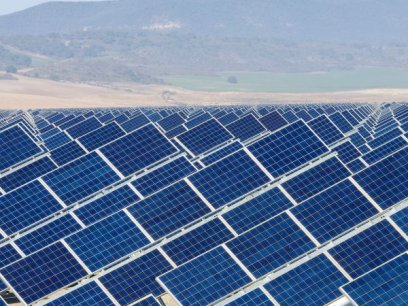
Along with bringing in cooler weather and color foliage, October brings National Energy Awareness Month. This annual celebration raises awareness about the importance of energy conservation and what individuals and organizations can do to boost energy efficiency at work and at home. After all, we all want to protect the environment and waste less, and energy is no exception.
But what can you do? And does it really make a difference? A resounding YES! Improving home energy performance can help improve the value and air quality of your home. To conserve energy (and save money in the process), incorporate these energy-efficiency tips into your home:
Seal those leaks!
Did you know that air leaks add 10%–20% to your heating and cooling bills? As one of the biggest sources of home energy loss, air leaks are an easy fix once you identify them. Fall provides the perfect opportunity to caulk, seal, and weather-strip all of your home’s seams, cracks, and openings to the outside. Also, you might want to look at whether your home needs insulation and if your air ducts are cleaned, sealed, and functioning properly. By sealing both the small and the big uncontrolled air leaks, you’ll safeguard your home from the blast of winter temps headed your way.
Control your temperature
Heating and cooling together typically account for 35%–40% of your energy use, making them your home’s largest energy users. Make sure you’re properly maintaining your equipment and, if needed, spring for an upgrade. (If you need to buy a new heating or cooling system, ask your contractor about the most current energy-efficient technologies available.) You might consider a smart, programmable thermostat to more efficiently heat and cool your home, as it provides convenience, insight, and control. (You can even control your home temperature remotely through your smart phone!) For example, just by adjusting your thermostat 7°–10°F (up in the spring/summer and down in the fall/winter) for eight hours a day, you can save as much as 10% per year on heating and cooling. A smart thermostat will learn your temperature preferences and adjust accordingly, when you’re asleep or away from home.
Review your water usage
Heating your water accounts for your home’s second biggest energy expense—about 13% of your total energy usage. To conserve energy and decrease your water heating bills, you can opt for these savings strategies. For starters, simply use less hot water, perhaps taking a five-minute shower instead of a 10-minute one. You can also set your water heater’s thermostat to a lower temperature (such as 120ºF instead of 130 ºF) to save energy. Finally, you might want to insulate your water heater tank and pipes, both of which can shave dollars off your water heating bill.
Use National Energy Awareness Month to conduct an energy audit at your own home and find ways to increase its energy efficiency. Your wallet will thank you, too.
Source:
- Energy Saver: Tips on Saving Money and Energy in Your Home, U
.S.Department of Energy, Office of Energy Efficiency & Renewable Energy


